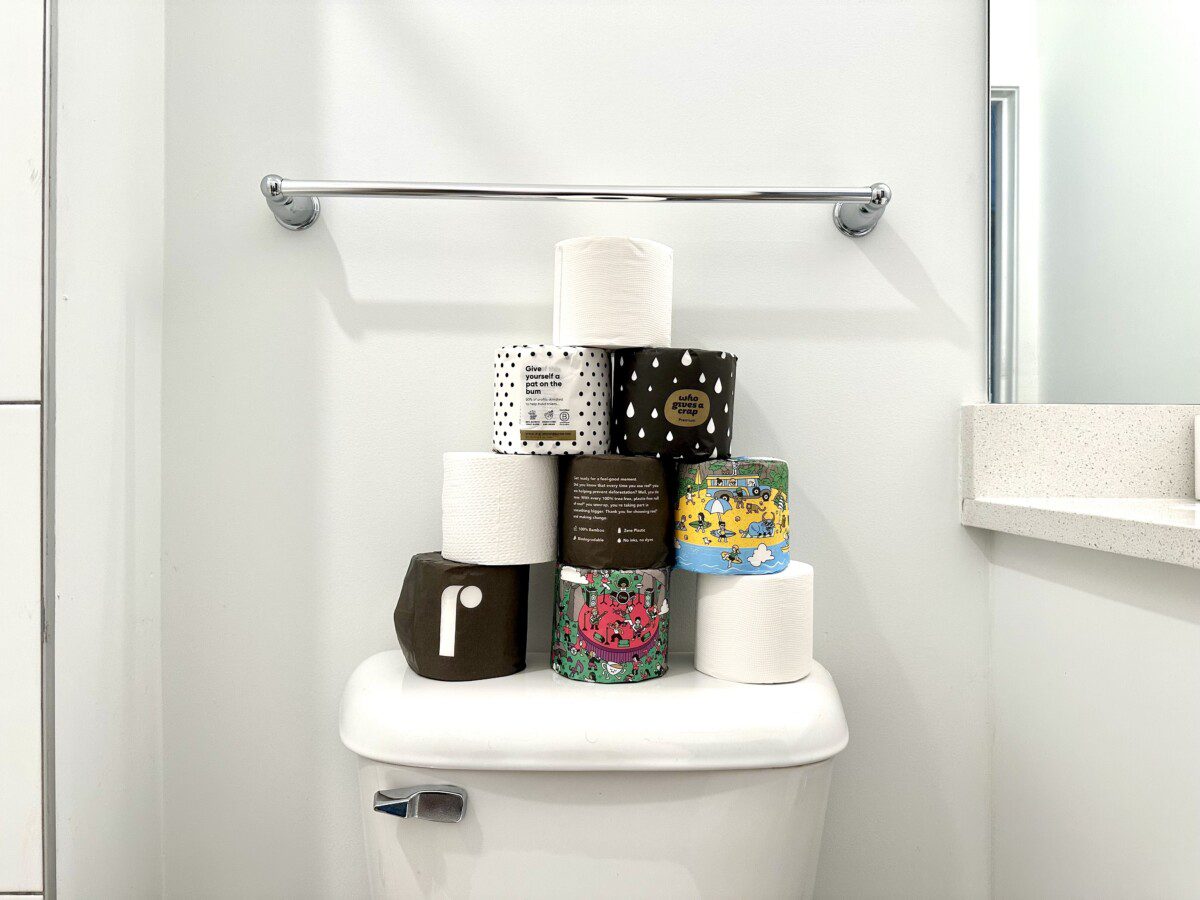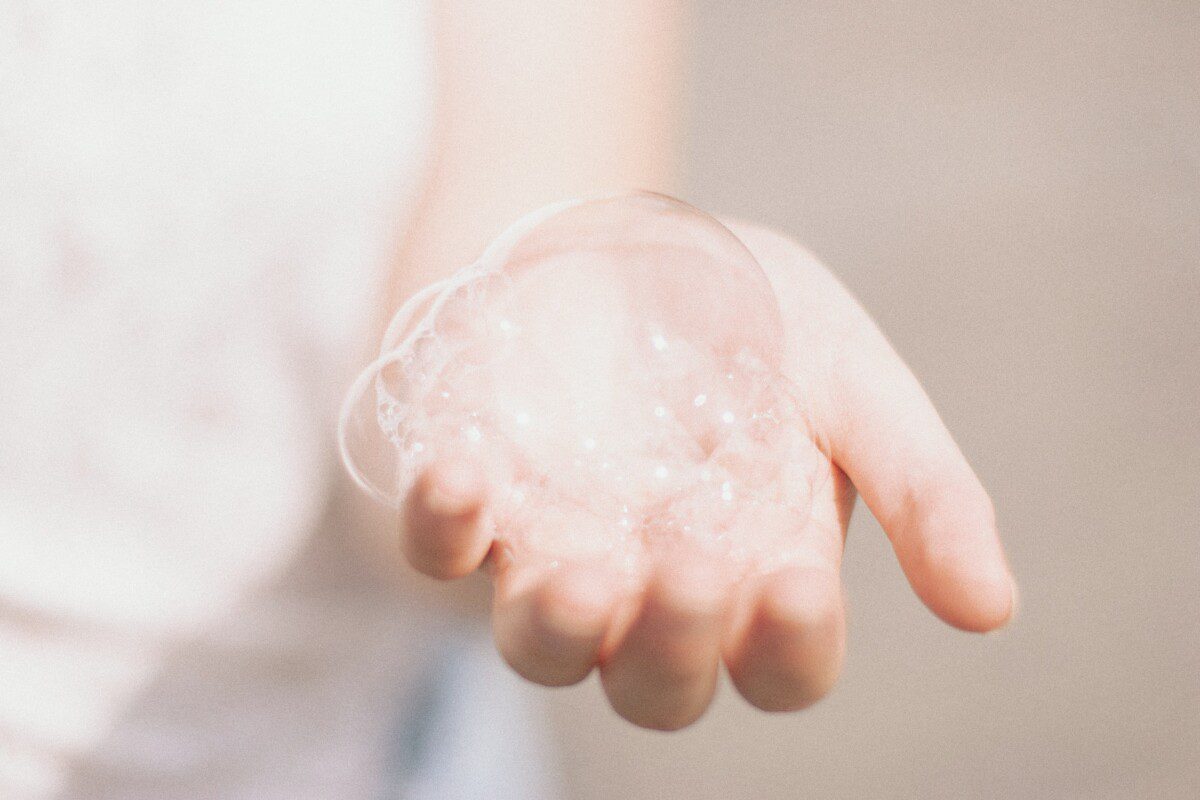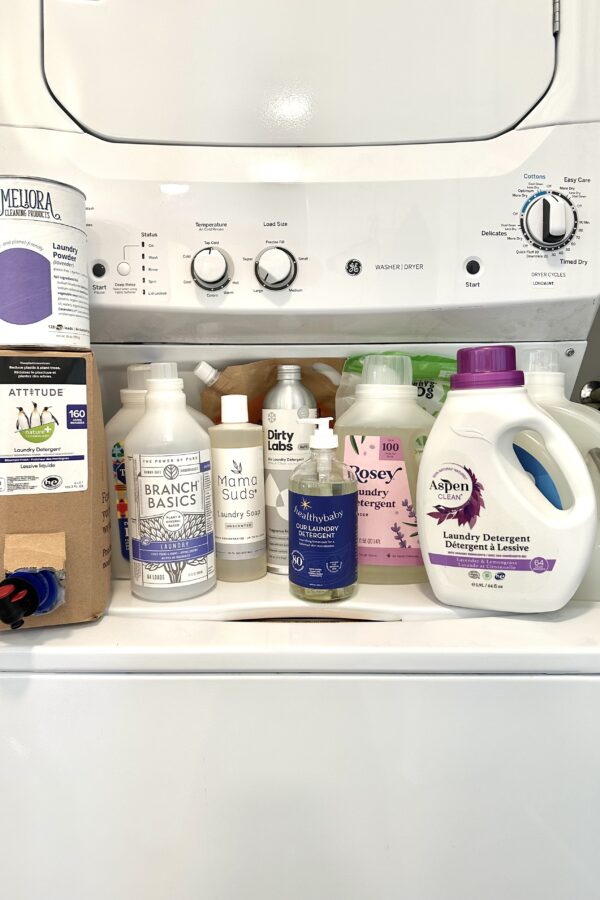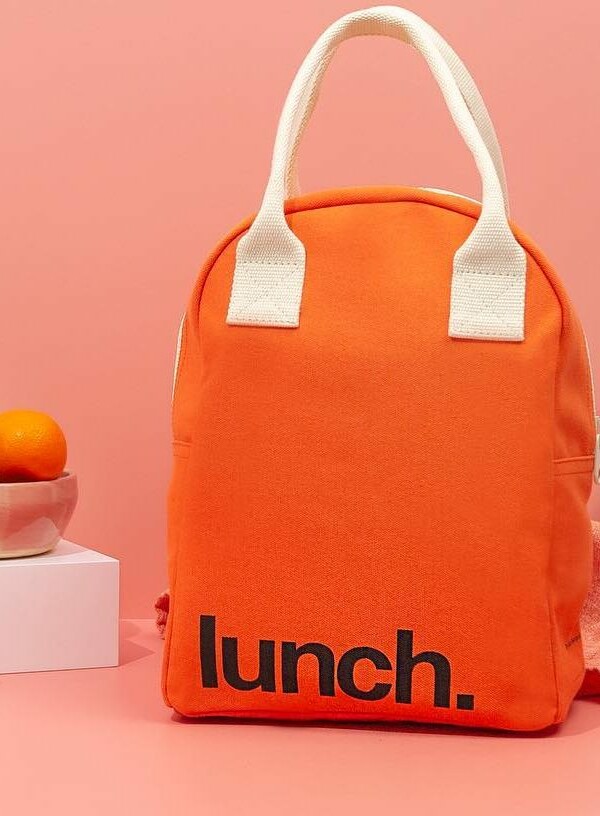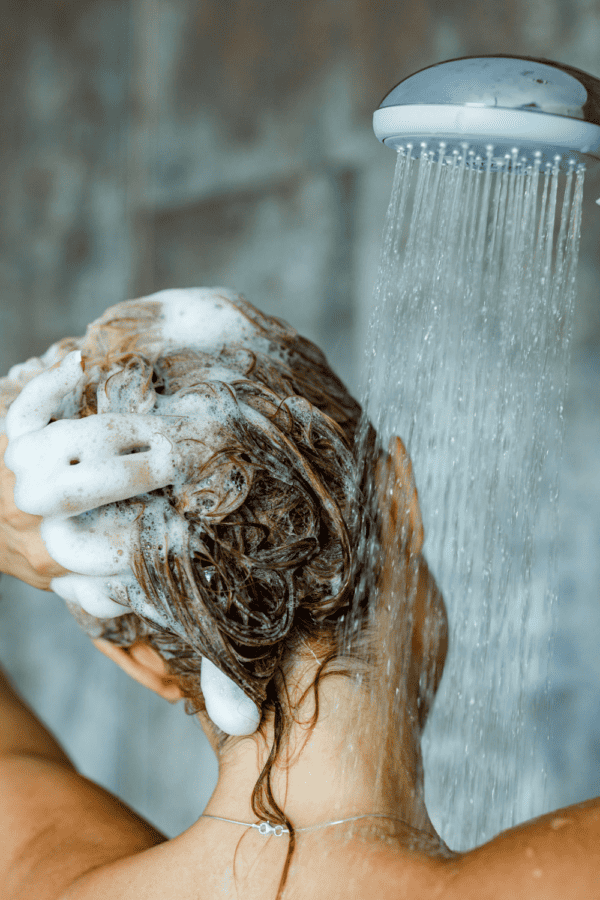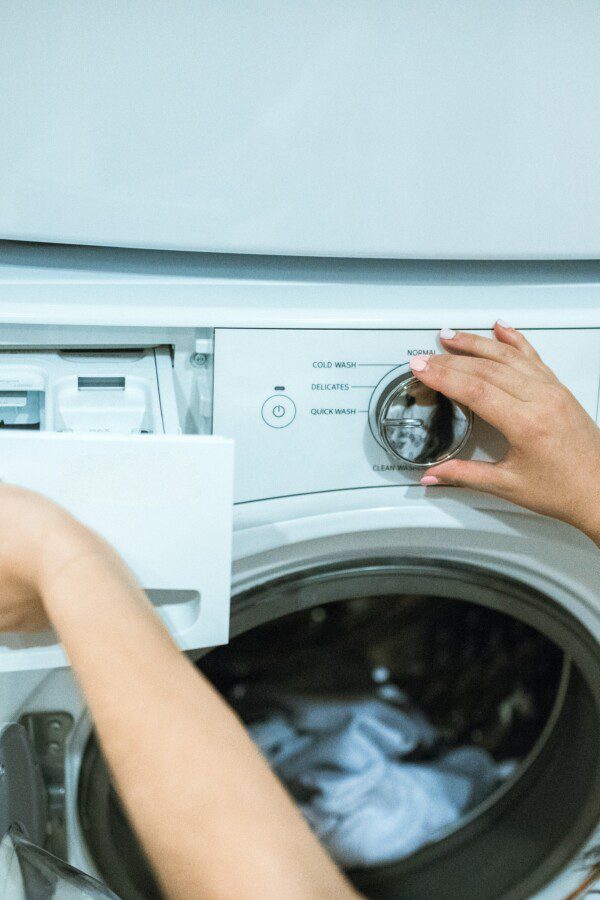PEVA is a common PVC-free alternative to shower curtains and shower curtain liners. But what is it? Which is really better: PVC or PEVA? And what is the best material for a non-toxic shower curtain?
Let’s get into it.
Table of Contents
- What is PVC?
- What is PEVA?
- Is PEVA Fabric or Plastic?
- Is PEVA Non-Toxic?
- Is PEVA Safe for Babies & Children?
- Is PEVA Eco-Friendly?
- So, Which is Better: A PVC or PEVA Shower Curtain?
- What is the BEST Material for a Shower Curtain?
- Hemp
- Linen
- Cotton/Organic Cotton
- What About Nylon and Polyester?
- Do You Have to Use a Shower Curtain Liner?
- How to Waterproof a Natural Fabric Shower Curtain
- What Else to Look for in Non-Toxic Shower Curtains
- The Best Non-Toxic, Natural Shower Curtains & Fabric Shower Curtain Liners
- Printfresh
- Dream Designs
- Rawganique
- Coyuchi
- Boll & Branch
- Dream Designs
- Bean Products Inc.
- Pottery Barn
- Union Salt Works
- Conventional Cotton Shower Curtains
- Conclusion
What is PVC?
Conventional shower curtains are made from polyvinyl chloride, or PVC. Although PVC is practically all around us, it is actually the most toxic kind of plastic.
As its name indicates, PVC contains chlorine, which creates byproducts called dioxins and furans. These are extremely toxic chemicals. According to the World Health Organization (WHO), dioxins “can cause reproductive and developmental problems, damage the immune system, interfere with hormones and also cause cancer.”
Not only that, but PVC almost always contains phthalates (which are used to make the plastic more flexible). Phthalates are endocrine disruptors, which means they can interfere with one’s natural hormone function and lead to infertility and developmental toxicity. They’re also linked to things like diabetes and asthma, and also may be carcinogenic.
To make matters even worse, heat can release these and other volatile organic compounds (VOCs) from the plastic, which means you’re likely breathing small amounts of them in every time you take a hot shower. These chemicals can build up in your air over time, increasing indoor air pollution and negatively affecting your and your family’s health over a long period of time.
Despite its ubiquity, many people have been taking baby steps to decrease the amount of PVC in their life. One way to do that is by switching away from PVC shower curtains and vinyl liners.
This post may contain affiliate links, which means we may earn a small commission if you choose to make a purchase. We only make recommendations that are genuine and meet our ingredient/material safety standards.
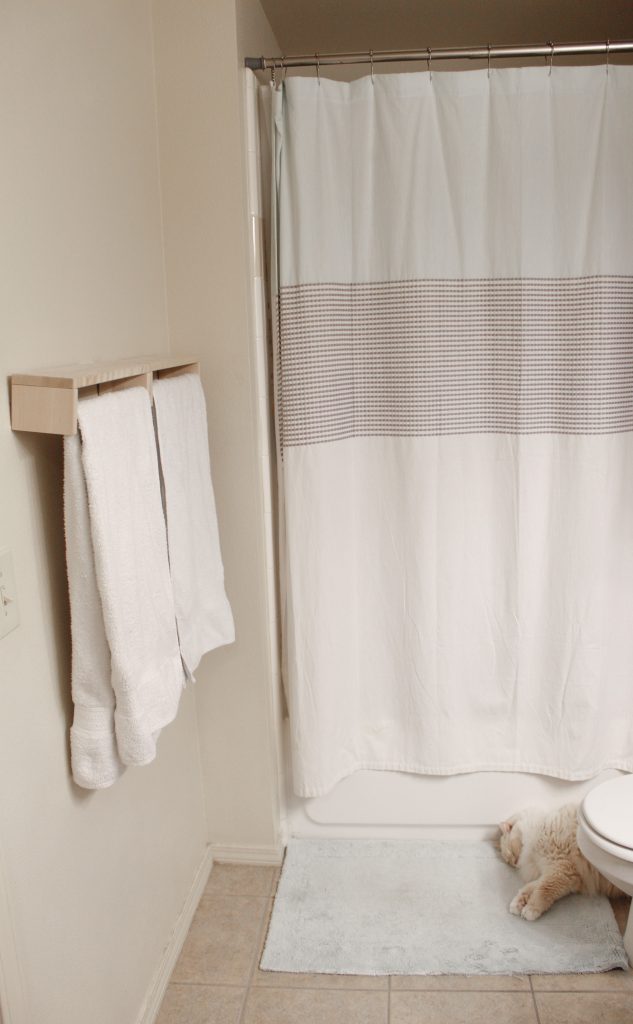
What is PEVA?
PEVA is becoming a common PVC-free alternative for shower curtains. PEVA stands for polyethylene vinyl acetate. Sometimes, it’s abbreviated as just EVA.
Is PEVA Fabric or Plastic?
These days, there is a lot of crossover between plastics and fabrics. For example, you probably think of polyester as fabric, but it’s also plastic. ECONYL is another type of fabric that is made from recycled plastic.
PEVA is similar; even though it may be fabric-like, it is still plastic.
Is PEVA Non-Toxic?
When shopping for a PEVA shower curtain, you’re likely to see it marketed as “environmentally-friendly” and “non-toxic.” But, not so fast… Although PEVA is certainly a better alternative to PVC, it doesn’t make a clean getaway.
The primary selling point for PEVA is that it doesn’t contain chlorine, which means it doesn’t produce those extremely toxic byproducts.
While that is certainly great news, that’s pretty much where it ends. PEVA contains other VOCs and is still potentially toxic.
Home
Best Unbleached, Chemical-Free Toilet Paper For Your Bum
Toilet paper wreaks havoc on our environment and contains toxins. These are the best chemical-free toilet paper brands and healthy toilet paper alternatives.
Is PEVA Safe for Babies & Children?
Unfortunately, there are still too many unknowns when it comes to PEVA. It hasn’t been studied enough to give us a good idea of just how toxic it is and what exactly is even in it.
For this reason, we recommend your stay on the safe side and skip the PEVA shower curtain for your little ones. Instead, get a shower curtain made from natural and organic fabrics, like the ones listed below. (Although, if you have to choose between PVC and PEVA, go with the latter.)
Is PEVA Eco-Friendly?
The word is still out on whether or not PEVA is actually biodegradable. Some claim PEVA it is, while others say it’s definitely not. The thought that PEVA is biodegradable may come from the idea that the word acetate indicates a plant-based material. But just because a material is originally sourced from a plant doesn’t automatically mean it’s eco-friendly and/or non-toxic (as we addressed with rayon fabric). If PEVA is biodegradable, it’s almost certainly only able to decompose in a commercial facility, so don’t go throwing your old PEVA shower curtain in your backyard compost!
Is PEVA recyclable? It is more recyclable than PVC due to its lower toxicity, but you should check with your local recycling facility to find out if they have the capacity to recycle PEVA.
Home
7 Best Non-Toxic & Organic Bath Mats
Whether you’re looking for a non-slip mat to use inside your bathtub or an absorbent organic bath mat for outside of it, here’s what to look for (and our favorite brands).
So, Which is Better: A PVC or PEVA Shower Curtain?
PEVA shower curtains are definitely less toxic than PVC. They don’t contain chlorine, which means they don’t emit toxic dioxins.
But, PEVA shower curtains still contain toxic VOCs and we need more research to determine just how safe (or unsafe) PEVA actually is.
In the meantime, check out the healthier, non-toxic, PVC- and PEVA-free shower curtains below.
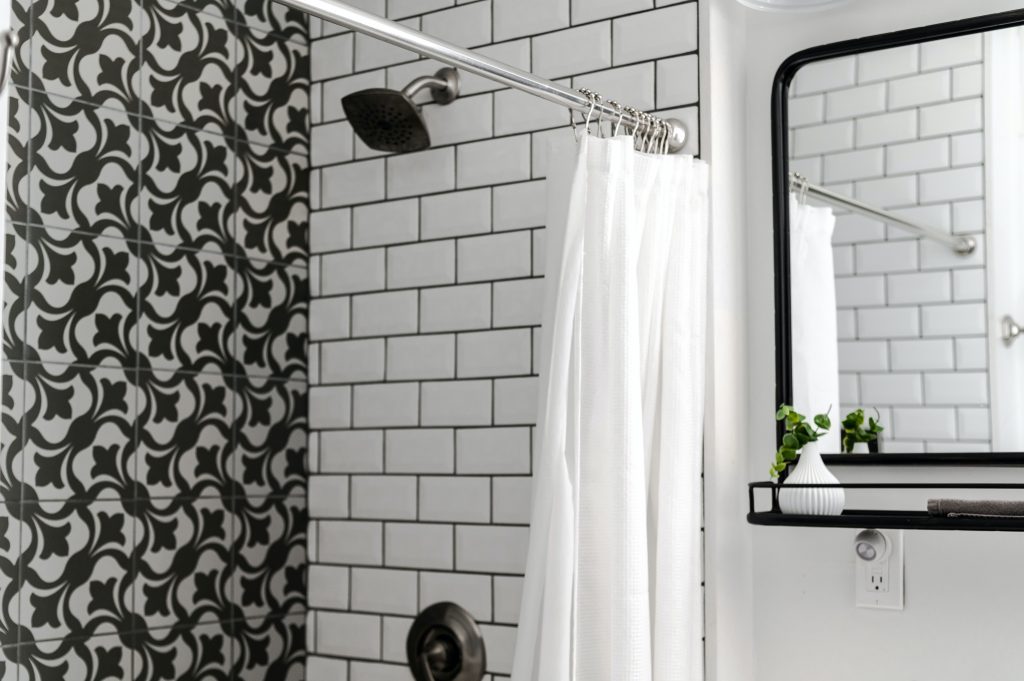
What is the BEST Material for a Shower Curtain?
Hemp
Hemp is one of the best fabrics available for your non-toxic shower curtain. It can be grown without the use of herbicides and pesticides, making it healthier not only for you and your family but also for the soil and farmers who grow it. Hemp is also naturally anti-bacterial, which can help to keep bacteria and mold growth at bay as well.
Hemp is also very durable and can last a really long time!
How do you clean a hemp shower curtain?
Hemp is machine washable! In this way, they can be even easier to clean than PVC and PEVA shower curtains. (Just make sure you use non-toxic laundry detergent!)
Are hemp shower curtains waterproof?
Hemp is not waterproof, but it can be woven tightly to make it effectively water-resistant. It can also dry quickly, so you don’t have to worry about mold and mildew (as long as you keep your bathroom well ventilated).
Linen
Linen (made from the flax plant) is similar to hemp in a lot of ways. It is a natural, plastic-free fabric that can be easily grown and harvested without pesticides.
It also has natural anti-bacterial and anti-static properties and is very durable.
Linen is not waterproof, but it is breathable and fast-drying. It can be put in the washing machine as well!
(You can find waterproof linen shower curtains like this one, but it’s unclear what the waterproof lining is made of… it’s probably plastic.)
Cotton/Organic Cotton
There are pros and cons to cotton and organic cotton shower curtains. They’re both natural, plastic-free alternatives to PVC and PEVA, which is a plus right off the bat.
Conventional cotton tends to be the most affordable option, so it might be the best choice for those looking for a natural fabric shower curtain on a budget. Cotton fabrics, however, can contain toxic pesticide residue since conventional cotton is grown using these chemicals. Non-organic cotton also requires a lot more water to grow, making it more environmentally intensive.
Organic cotton is a better option because it’s grown and processed without toxic chemicals and requires much less water.
The downside is that cotton is not waterproof or resistant to mold or other bacteria when compared to the alternatives. For this reason, you’ll probably want to use a shower curtain liner and throw your cotton shower curtain in the washing machine more often in order to prevent mold and bacteria growth.
What About Nylon and Polyester?
Nylon and polyester fit into a similar category that PEVA does. They are a better alternative to PVC, are affordable and durable, and are water-resistant (although not 100% waterproof).
They are, however, still plastic. That means they can contain VOCs and are not as eco-friendly compared to natural materials like hemp, linen, and cotton.
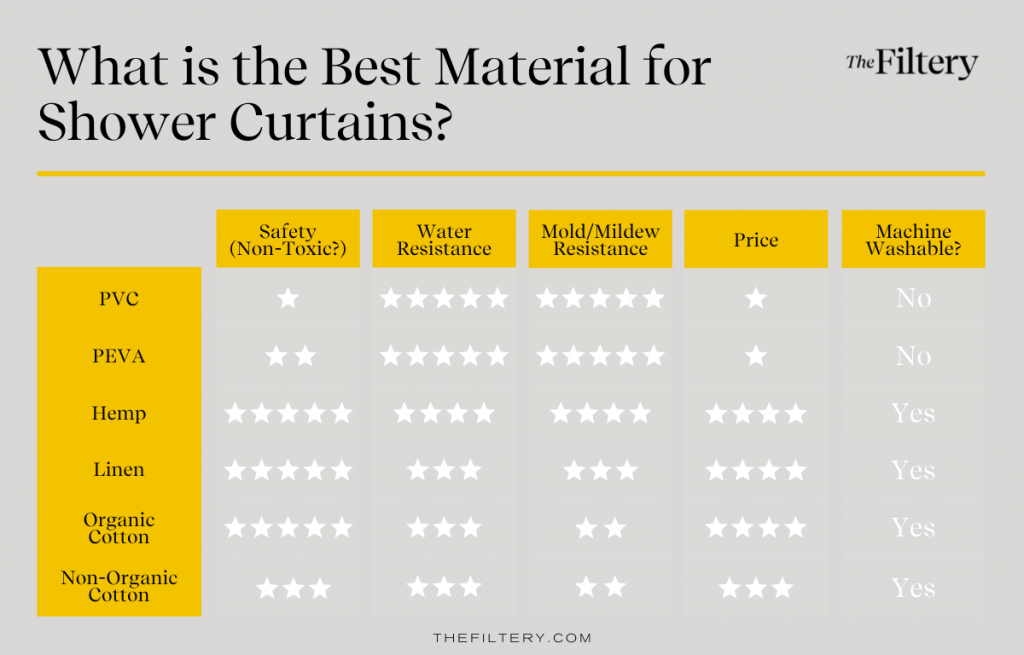
Do You Have to Use a Shower Curtain Liner?
Whether or not you really need a shower curtain liner depends on several different factors, including shower curtain material, type of weave, and your own personal preferences.
One of the big reasons that plastic shower curtains like PVC and PEVA have become so widely used is that they’re waterproof, so you don’t need to use a liner (unless you want to for aesthetic purposes).
But some natural materials, like hemp, can be very highly water-resistant as well. Look for a fabric that is tightly woven (which allows much less water to leak through), and don’t hesitate to ask the brand if they recommend a liner be used with a specific shower curtain.
Many people who are working to decrease the toxic chemicals and plastics in their life choose to use a fabric curtain liner instead. You can technically use a regular shower curtain as a liner as well. You can buy two natural, non-toxic fabric shower curtains from the brands below and let one hang inside the tub and let the other hand outside the tub. It might be more of an investment up front, but they will last you a really long time. No more replacing that cheap plastic liner every year!
How to Waterproof a Natural Fabric Shower Curtain
Instead of using a liner, you can apply Rawganique’s Waterproofing Wax to the backside of your hemp, linen, or cotton shower curtain. These wax bars are made from natural ingredients and free from petroleum derivatives, distillates, and chemicals.
It’s simple and cheap to apply: simply wax the waterside plus 10″ on the bottom of the other side (or you can technically wax both sides if you want to).
Waxed curtains are no longer machine washable, but you can just wipe them down with a damp cloth to clean them. Reapply the wax every year or two or as needed.
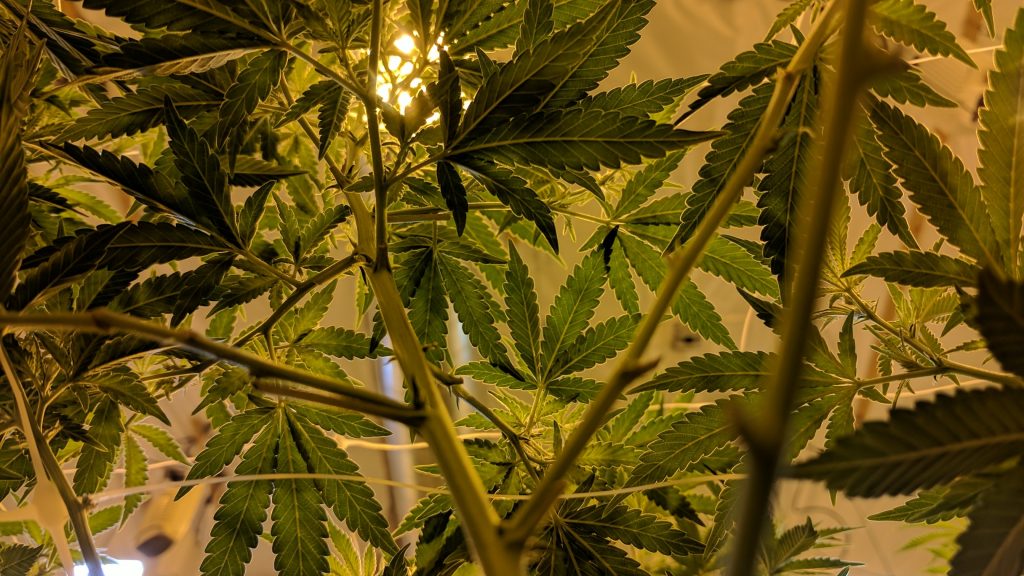
What Else to Look for in Non-Toxic Shower Curtains
In addition to eco-friendly, non-toxic materials, there are a few more things to look for in safe shower curtains:
Non-Toxic Dyes
If you’re buying a colored curtain, make sure the brand has used non-toxic, low-impact, and/or organic dyes. Look for the OEKO-TEX and/or MADE SAFE certifications, which indicates that no toxic chemicals were used. Or just go with undyed if you want!
Third-Party Certifications
Third-party certifications indicate that someone outside of the company has verified the brand’s safety and environmental claims. Here are the three main labels you’ll see when it comes to shower curtains:
Global Organic Textile Standard (GOTS): This indicates that the material has been grown and processed without harmful chemicals such as herbicides and pesticides. GOTS also has qualifications that involve fair treatment of farmworkers and suppliers. It’s most often used for organic cotton.
OEKO-TEX: As indicated above, this certification verifies that no known toxic chemicals exist in the final product.
MADE SAFE: This one is similar to OEKO-TEX in that it ensures no toxic chemicals have been used to produce the good. MADE SAFE is a newer and smaller certification than OEKO-TEX, but has stricter standards.
It should be noted that while third-party certifications are great, they aren’t the end-all/be-all. These types of certifications can be very costly to small farmers who work with tight margins; therefore, some farmers choose to grow crops using organic methods but skip the certification process.
Additionally, hemp and linen products often do not come with organic certifications because toxic chemical usage is actually rare. Don’t be afraid to ask brands more questions to find out more about their sourcing practices.
Other Ethical & Sustainable Initiatives
When looking for the best shower curtains, we didn’t stop at natural, organic, and non-toxic materials. We also look for ethical supply chains and other initiatives like low-waste and low-energy production methods.
Body
The 15 Best Non-Toxic, Sulfate-Free Body Wash Brands
You’ve likely heard that “sulfate-free” products are a good thing, but what even are sulfates anyway, and why should you consider using sulfate-free body wash (Plus: which non-toxic body wash brands can you find at Target, Walmart, and drugstores?)
The Best Non-Toxic, Natural Shower Curtains & Fabric Shower Curtain Liners
Printfresh
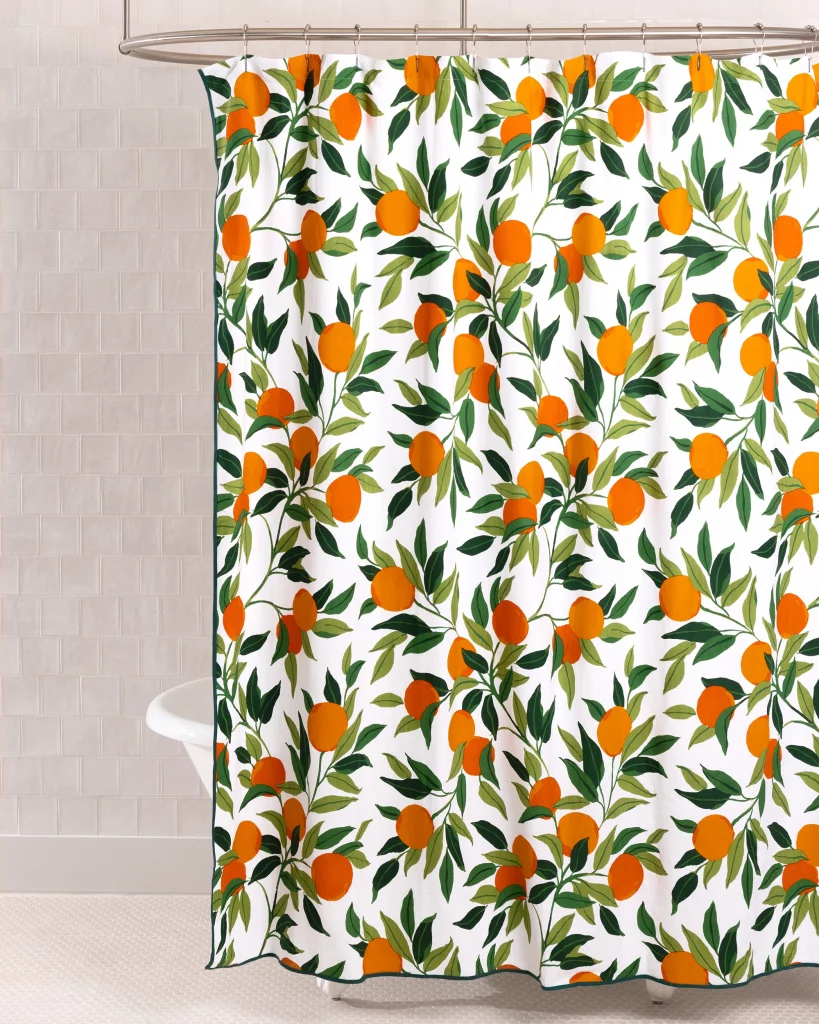
Printfresh started out with their super cute organic cotton patterned pajamas but has since expanded their collection to include home goods like shower curtains and bedding, too.
These patterned shower curtains are made out of a mix of organic and conventional cotton and are handmade by artisans in India. They make for a great statement piece in your bathroom!
Dream Designs
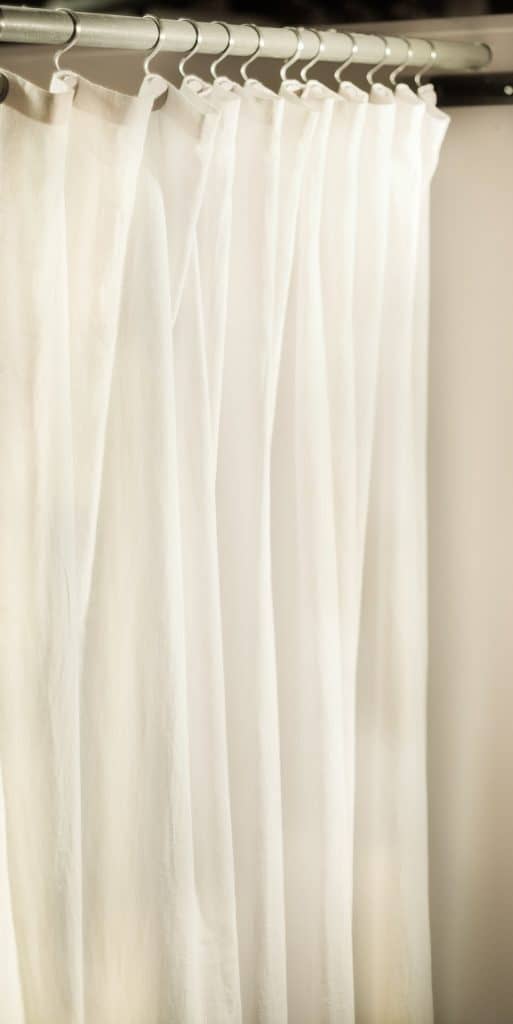
In addition to their bedding and towels, Dream Designs also carries hemp and linen shower curtains that come in “Natural,” “Sand,” “Sea Foam” blue, and “Key Lime” green.
These curtains are made in Canada and are OEKO-TEX certified, which means they’ve been tested for potentially toxic chemicals. They’re machine washable and dryable and you don’t have to use a liner at all!
Use code THEFILTERY for 10% off.
Rawganique
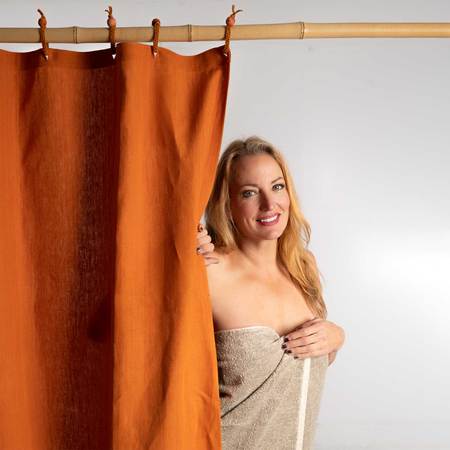
Materials: Hemp, linen, & organic cotton
This is one of the best brands for 100% chemical-free clothing and household textiles (like towels). They carry a variety of different materials, colors, and sizes so you can choose what’s best for you.
Rawganique is one of the highest-quality brands when it comes to truly non-toxic products. Everything is grown, woven, knit, and sewn in-house in the USA and EU for true purity. Those who are extra sensitive to chemicals should definitely check out Rawganique’s collection!
Coyuchi
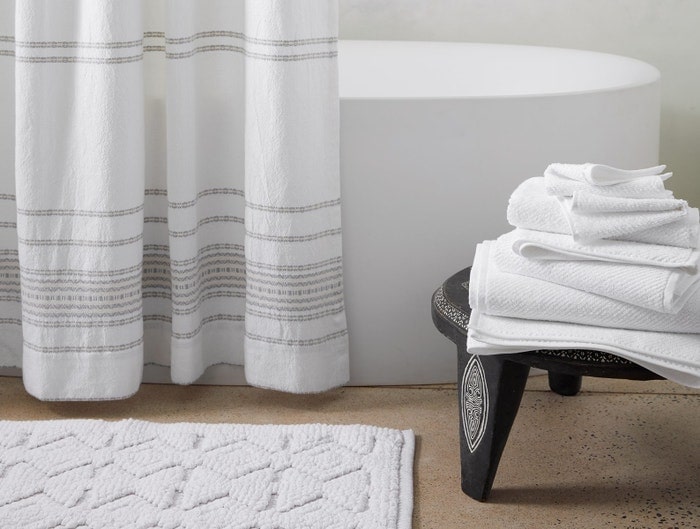
Materials: Organic cotton
Coyuchi’s Waffled and Rippled shower curtains are made from GOTS certified organic cotton that’s sourced and woven in India and Turkey. They’re also MADE SAFE certified, so you can feel safe knowing they contain zero toxic chemicals.
Boll & Branch
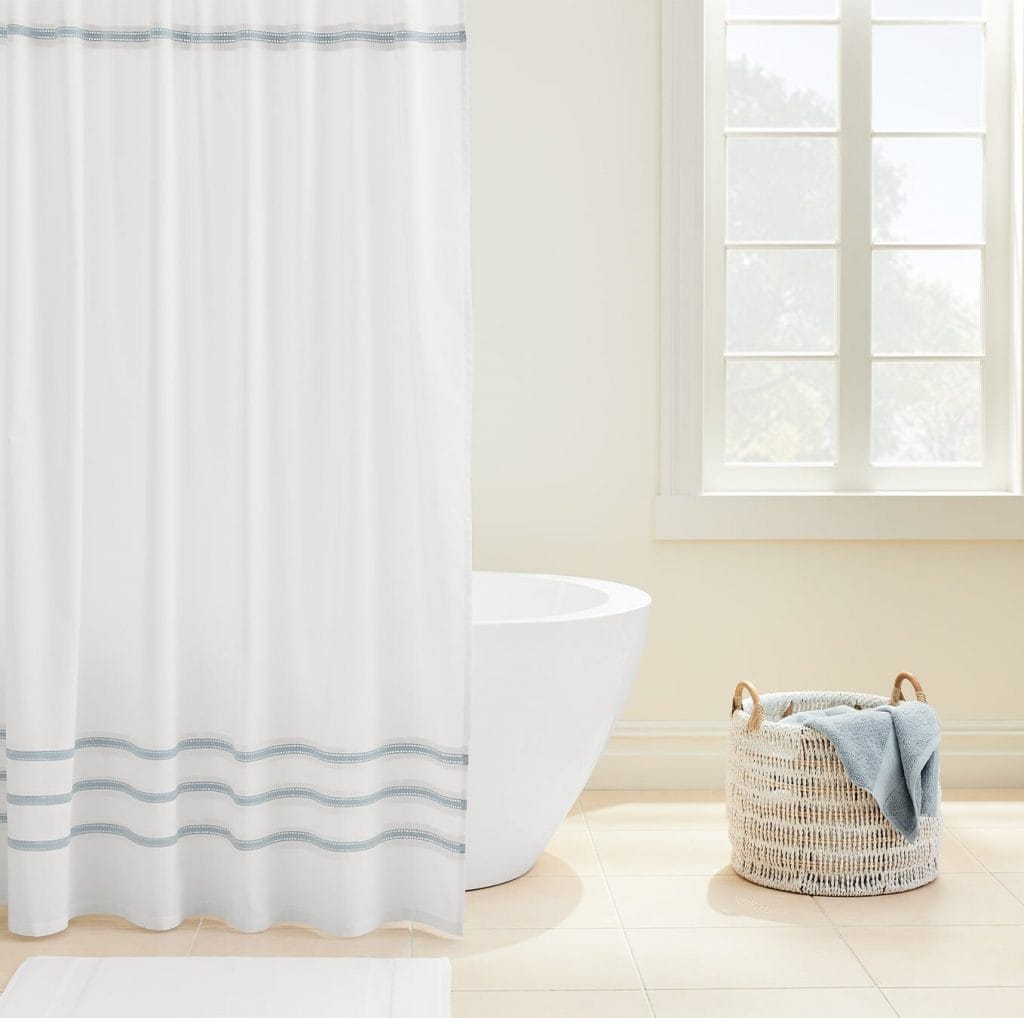
Materials: Organic cotton
You’ve probably heard of Boll & Branch because of their well-known bedding and towels, but they also carry shower curtains.
Their Waffle Shower Curtain and Signature Eyelet Shower Curtain are available in whites and pale colors. Both are certified by GOTS, Fair Trade, and OEKO-TEX®.
Dream Designs
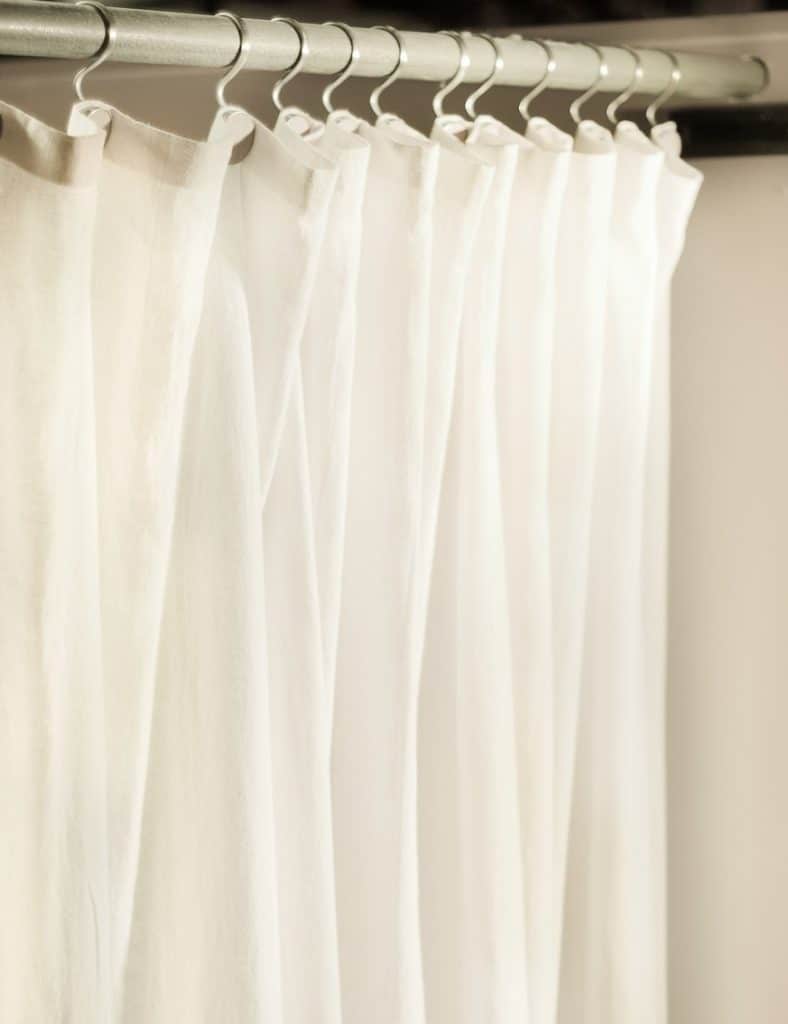
Materials: Linen
Dream Designs’ 100% natural linen shower curtains are made in Canada and OEKO-TEX certified. They’re tightly woven to make them water-resistant.
Bean Products Inc.
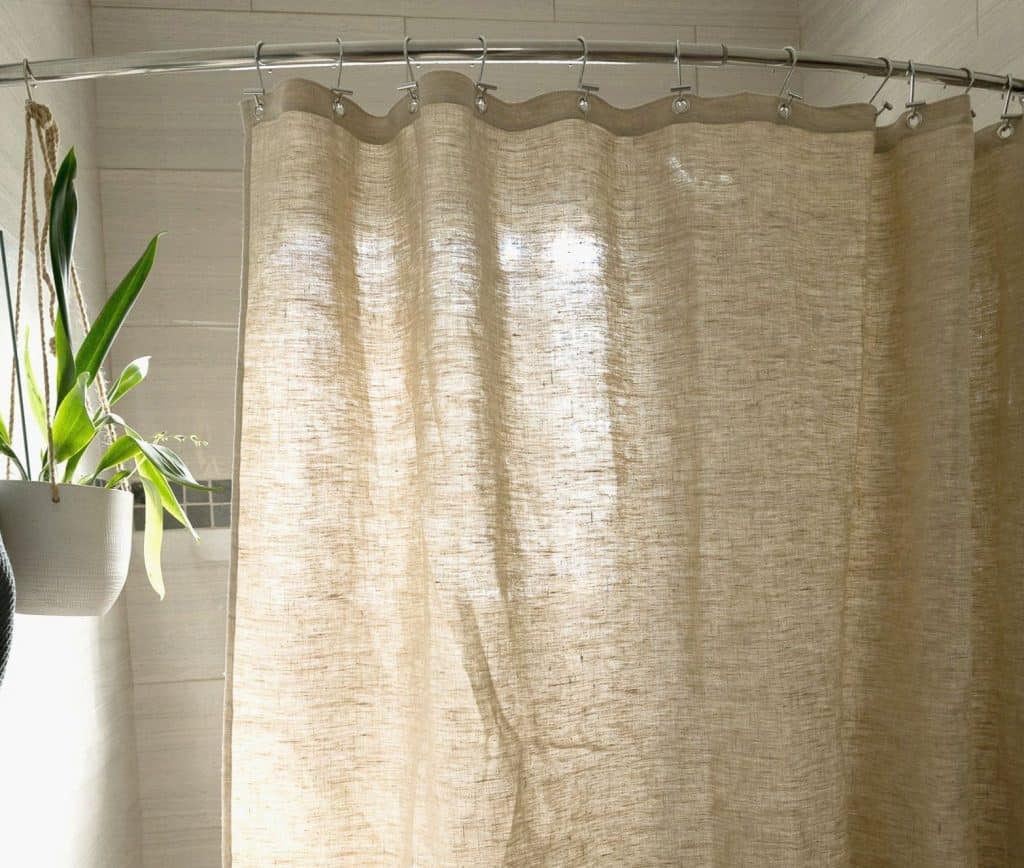
Materials: Organic cotton & hemp
Available on Etsy, these natural, non-toxic shower curtains are handmade in the USA and come in several different sizes and neutral colors.
Pottery Barn
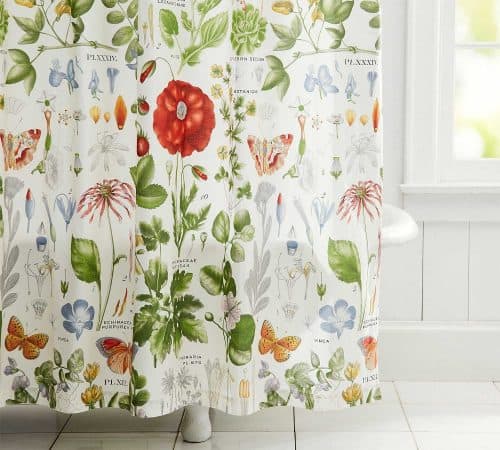
Materials: Organic cotton
If you’re looking for a wide variety of colorful geometric and floral designs, Pottery Barn is the way to go. These are made from GOTS and OEKO-TEX®, and the brand is also a member of the Better Cotton Initiative.
Union Salt Works
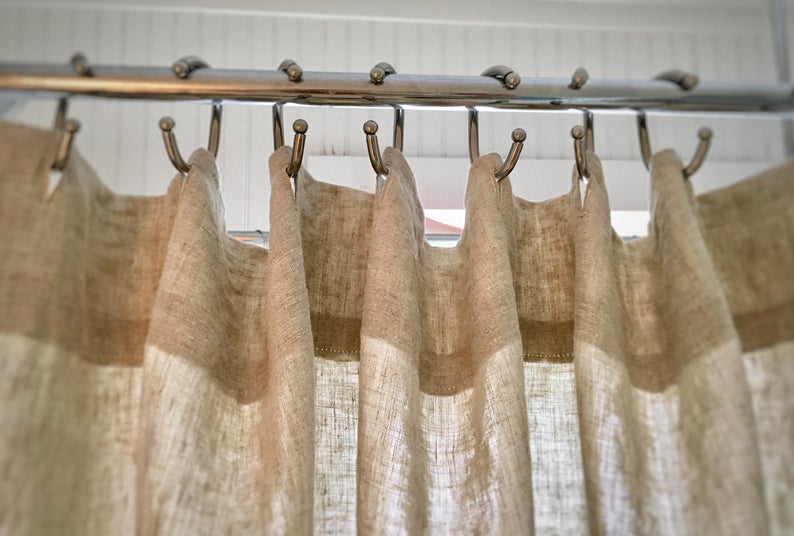
Materials: Linen
These natural linen shower curtains are hand-made to order in the USA and come in a lot of different sizes. They’re available in natural or white.
Conventional Cotton Shower Curtains
Although conventional cotton isn’t quite as great as organic cotton, hemp, or linen, it’s still a better option than PVC and PEVA for most people. These brands carry non-organic cotton shower curtains that are still high-quality, low in toxic chemicals, and ethically made.
Conclusion
PVC shower curtains have got to go. PEVA shower curtains are less toxic, but still not great. The next time you’re ready to swap out your shower curtain, go for natural hemp, linen, or organic cotton!
PIN IT:
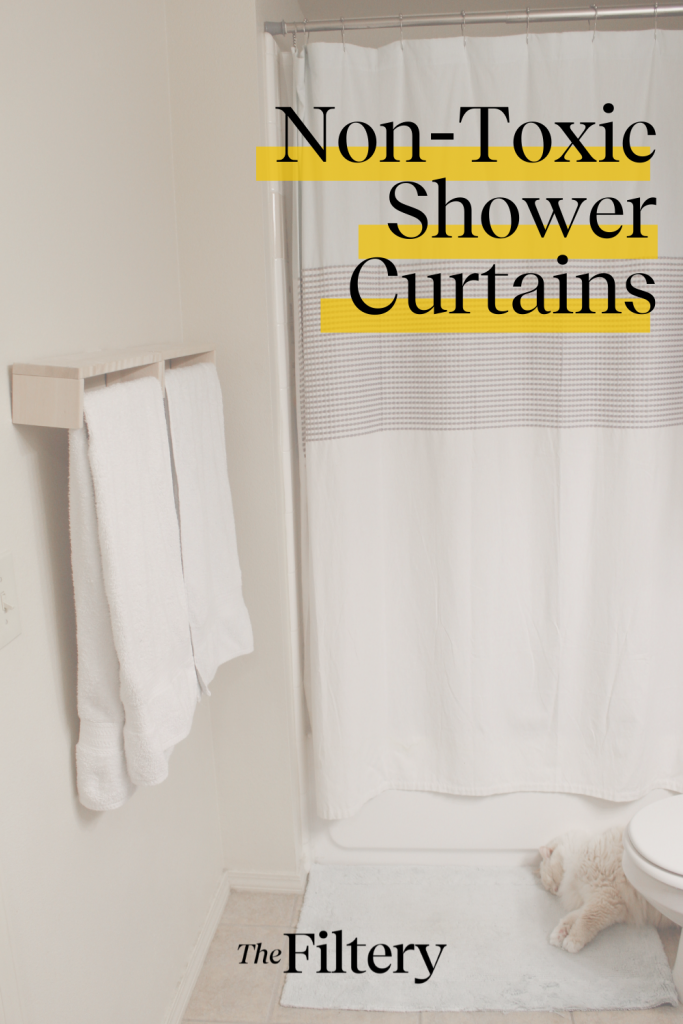
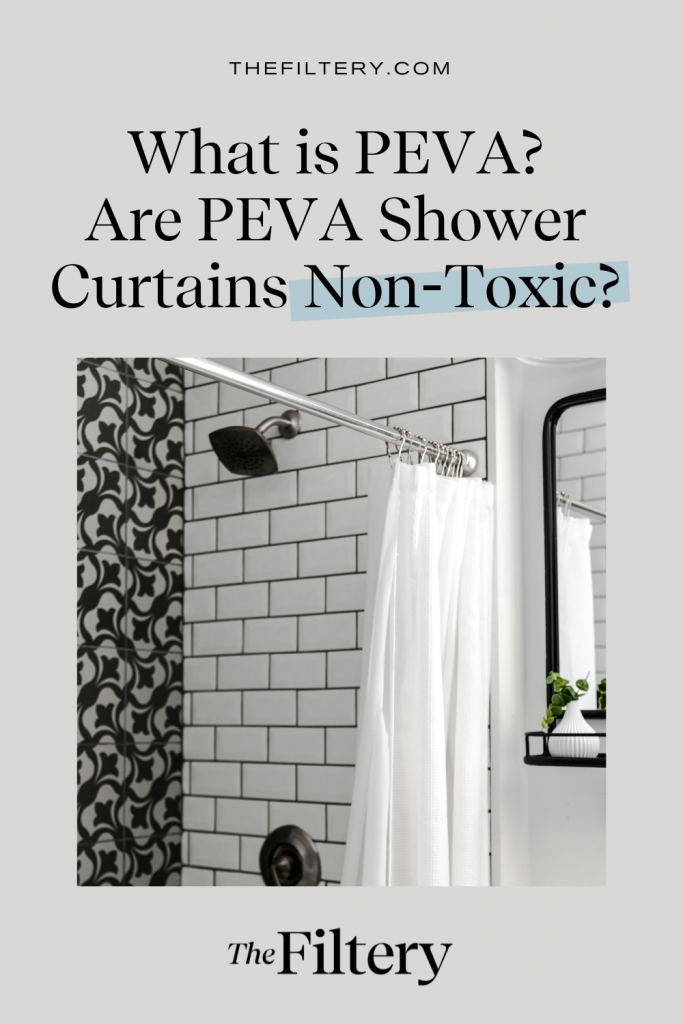
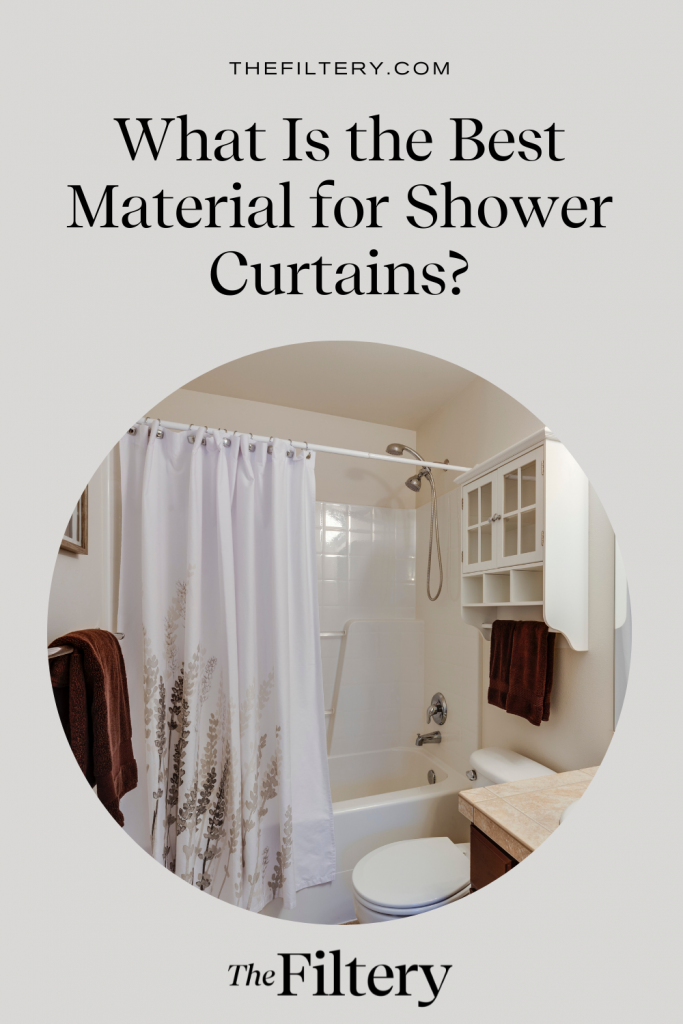
Image credits: Francesca Tosolini, Andrea Davis, Joyful, Drew Taylor, product photos belong to respective brands

